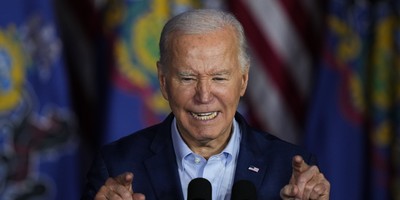Editor, Bob Beauprez's Note: The following commentary on labor reforms is authored by 18 economists and labor experts, including A Line of Sight Contributing Editor, Sanjai Bhagat, Provost Professor of Finance at the University of Colorado. The article was originally published July 10, 2012 by Fox News.com. A full list of the authors may be found by clicking here.
Now that Wisconsin Gov. Scott Walker has resoundingly won the recall election organized against him, pundits and policymakers are wondering what’s next. As economists and labor experts from across the country, we believe it’s time for legislators at all levels of government—local, state, and federal—to recognize that the labor reforms begun in Wisconsin need to be implemented nationwide.
The stakes couldn’t be higher. A ticking fiscal time bomb has already begun to explode in some cities, a direct consequence of unsustainable union pay and benefit packages. Meanwhile, state laws that mandate union membership as a job requirement are contributing to a status quo that delivers workers’ paychecks and citizens’ taxes into union hands—and from union hands to the bulging coffers of labor leaders’ favorite political allies.
The appropriate response to this perfect storm of excess is threefold.
First, steer our cities away from insolvency and bankruptcy by passing meaningful reforms to public employee pensions and compensation. Careful economic research has shown public-sector workers receive a level of compensation, pension benefits, and retiree health coverage in excess of what comparable workers in the private sector enjoy. In some instances, the total premium can be 30 percent or higher. The resulting burdens on municipal and state budgets are simply unaffordable.
In the city of San Jose, for instance, pension costs skyrocketed from $73 million to $245 million in just 10 years. The same night as Governor Walker’s victory, the city’s residents—both Democrat and Republican alike—looked past aggressive campaigning by public employee unions and voted overwhelmingly to make modest pension cuts that will save taxpayers millions. (Unions responded by filing suit.)
A similar vote happened down the coastline in San Diego, which means a bipartisan effort like this should be possible elsewhere—before it’s too late.
The next step, at the state level, is to advance right-to-work legislation that gives employees a choice in union membership.
A key tenet of our democracy is freedom of association—including the freedom to form a union. But what about the right of a worker to choose not to join a union? In the 27 states that haven’t passed right-to-work laws, this right doesn’t exist.
In 2012, the state of Indiana showed that such laws can become a reality, even in the face of bitter opposition from labor leaders. Not only are such laws good for employees—they also make good economic sense. Research published in the journal Regulation compared manufacturing employment in counties with a pro-business environment (including right to work laws) to counties across a state border that didn’t have such laws. The study found that manufacturing job growth was nearly 90 percent higher between 1947 and 1992 in the pro-business right-to-work counties.
The last step to effective labor reform should happen at the federal level, with the passage of the Employee Rights Act (ERA), a piece of legislation sponsored by Sen. Orrin Hatch (R-Utah) and Rep. Tim Scott (R-S.C.).
The provisions of the ERA include reinforcing the right to a secret ballot union election, regular recertification votes on whether employees wish to remain part of a union, and paycheck protection to allow employees to prevent their dues from going to politicians they don’t support. Unsurprisingly, in polling commissioned from Opinion Research Corporation, these provisions receive 80 percent support—even in union households.
Before Gov. Walker’s victory, this comprehensive policy program might have seemed too ambitious, however necessary to shoring up budgets, bolstering labor market flexibility, and securing America’s economic future. Now, it’s clear that our ambitions can rise to the level of our needs. It’s an opportunity policymakers can’t afford to miss.

























Join the conversation as a VIP Member